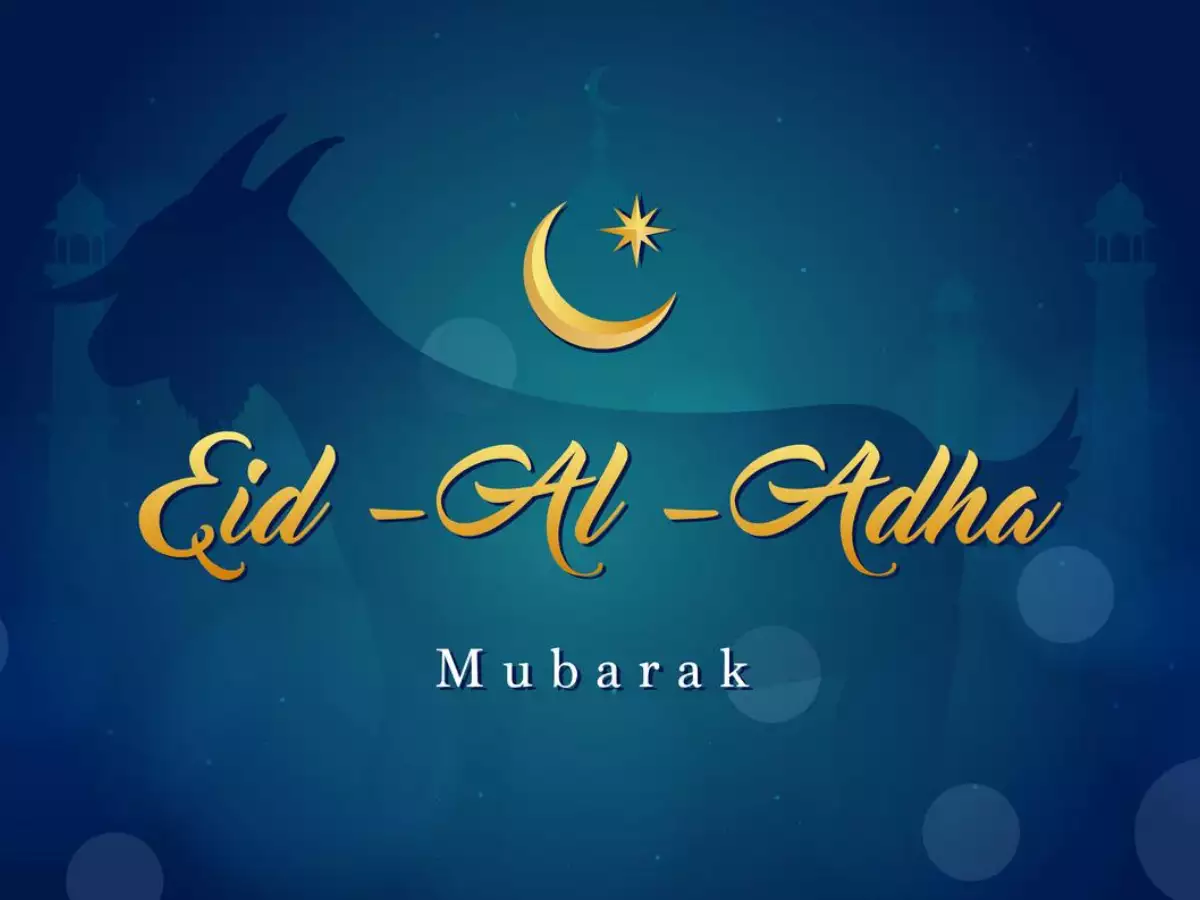Eid al-Adha, also called the Festival of Sacrifice, is one of the most important and happy days on the Islamic calendar. It remembers how much Prophet Ibrahim (Abraham) loved and obeyed Allah and how willing he was to give up his son as a sign of submission. In this piece, we'll talk about the reality of Eid al-Adha and its most important parts. We'll look at its spiritual meaning, rituals, and the values it tries to teach.
Spiritual Significance:
Eid al-Adha shows how much Prophet Ibrahim had faith, trust, and loyalty. It serves as a reminder of how important it is to obey Allah's commands and believe His wisdom completely. Prophet Ibrahim's willingness to give up his beloved son shows what it means to be completely obedient to Allah's direction.
Sacrificial Ritual:
The Qurbani, which is the act of sacrificing an animal, is one of the most important parts of Eid al-Adha. It represents the final act of submission and devotion. Muslims who can afford to do so offer an offering, which is usually a sheep, goat, cow, or camel. They do this because Prophet Ibrahim did the same thing. The meat from the animal sacrificed is split into three parts: one for the person, one for family and friends, and one for the poor. This shows how important it is to help others and share what you have.
Community and Unity:
Eid al-Adha is a time for Muslims to get together, strengthen their ties, and celebrate as a single community. Families and friends pray together at the mosque or on special prayer grounds, meet each other, and eat together. This event encourages peace, kindness, and a sense of community, putting aside differences and giving Muslims all over the world a feeling of belonging and unity.
Acts of Worship:
Other than the traditional sacrifice, Eid al-Adha includes a number of acts of worship and thanksgiving. These things are:
Special Eid prayers:
Muslims pray together during special Eid prayers. During these prayers, they ask for forgiveness, show thanks, and ask for blessings.
Keeping Allah in mind: During this good time, people are encouraged to read the Quran, do dhikr (remembering Allah), and do other acts of worship on their own.
Muslims use this time to think about their own religion, look for ways to improve themselves, and strengthen their relationship with Allah.
Celebration and Festivities:
On Eid al-Adha, people celebrate and have fun. Muslims dress up in their best clothes, wish each other "Eid Mubarak," and do other fun things to celebrate. Some of these are going to see family and friends, having meals and sweets, giving gifts, and doing fun things. The air is full of happiness, thanksgiving, and respect for Allah's gifts.
Philanthropy and Social Responsibility:
Eid al-Adha stresses how important it is to help others and do the right thing. Muslims are urged to give to those who don't have as much, so that everyone can enjoy the happy celebrations. Donating to good causes, giving meals to people in need, and helping people who are on the outside are all important parts of this holiday. These actions show the Islamic values of kindness, empathy, and generosity.
Eid al-Adha is a very spiritual holiday that shows how important faith, obedience, unity, and kindness are. Muslims celebrate this holiday to remember Prophet Ibrahim's loyalty, strengthen family and community bonds, show worship and gratitude, and help those in need. As Muslims celebrate Eid al-Adha, may the holiday bring them happiness, blessings, and a renewed sense of faith and dedication to Allah's commands. Eid Mubarak to all!
Read More...
https://form.jotform.com/biyoma9683/how-can-i-book-cheap-packages-for-u
https://denver.granicusideas.com/ideas/how-makkah-became-the-holiest-city-for-muslims-1
https://wiwonder.com/read-blog/15428_historic-mosques-in-makkah.html
https://whentheworldbecameglobal.sites.grinnell.edu/umrahpackages/rewards-of-umrah-in-ramadan
https://www.imabi.net/apps/blog/show/50451257-how-makkah-became-the-holiest-city-for-muslims-


